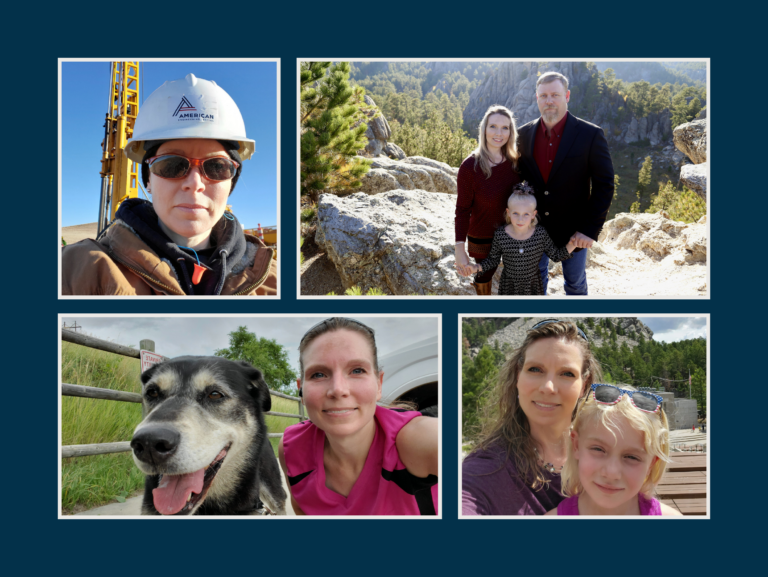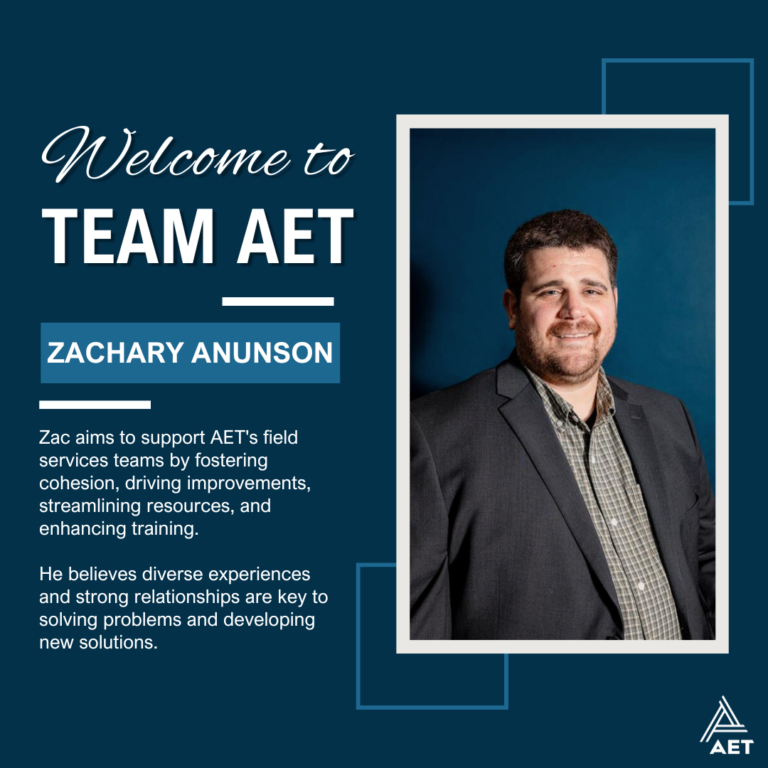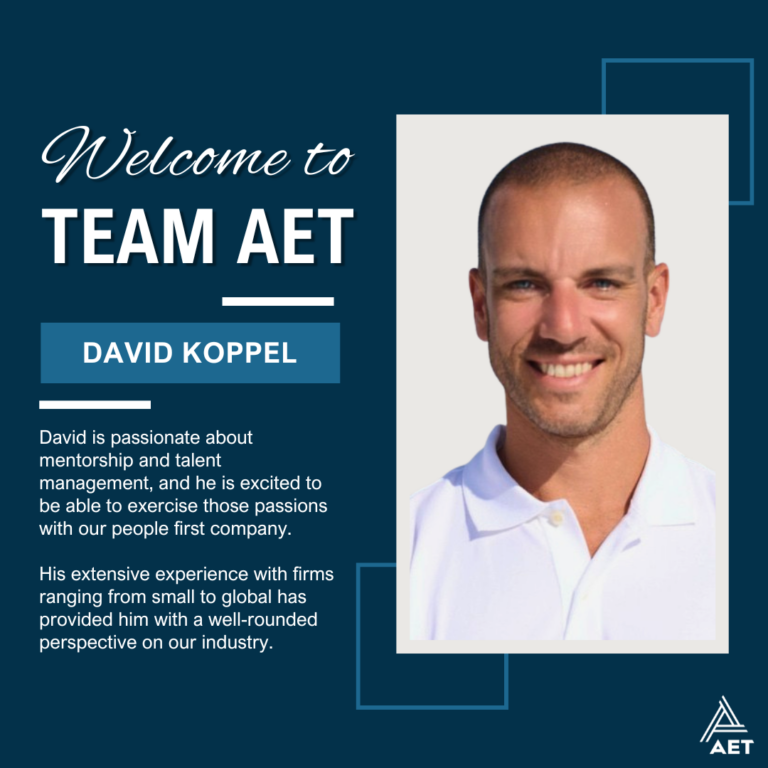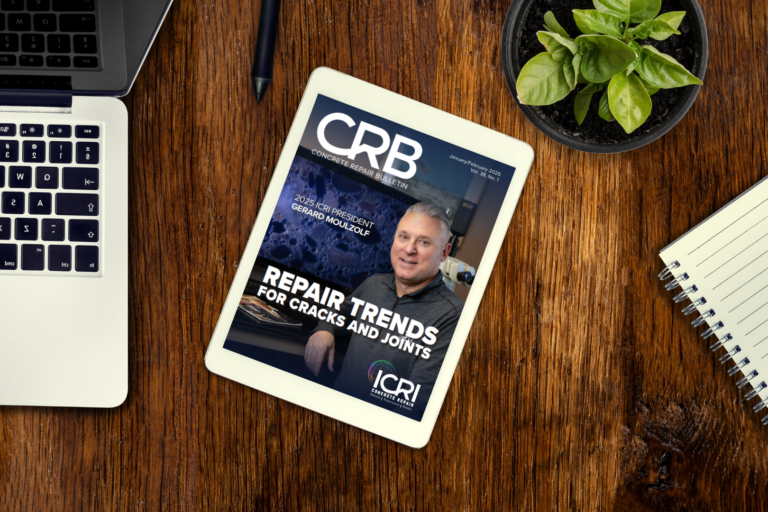March is Women’s History Month, and we proudly celebrate all the incredible women working at AET! Their contributions make an enormous impact and help keep the gears turning.
As we honor this month, we will highlight three remarkable women as they share their advice, challenges, and experiences. Today, we will shine a spotlight on Kristen Yates.
Please tell us about your position and experiences at AET.
I am AET’s Western Dakotas Area Manager, meaning I am half of the West Division Manager, focusing on Williston and Dickinson, North Dakota, Sheridan, Wyoming, and Rapid City and Pierre, South Dakota.
I started at AET as a construction materials testing intern for two summers and worked part-time through my last semester at the South Dakota School of Mines and Technology. After graduating, I left AET and worked for an environmental firm for about one and a half years. I then returned to AET in the summer of 2008 full-time at the Rapid City office as an engineering assistant. In this office, I worked in all three service lines—Construction Materials Testing, Geotechnical, and Environmental—before landing in Geotechnical Project Management.
I took my Professional Engineers (PE) exam a couple of times and passed in the spring of 2013. I am now a registered PE in South and North Dakota. I am also a Certified Petroleum Release Remediator, a licensed monitoring well driller in North Dakota, and a licensed well driller in South Dakota. I became Manager of the Rapid City office in 2017 and the Area Manager, most recently in 2022.
You could say that in my almost 16-year tenure, I have “grown up” in AET. I have had many opportunities to learn, grow, and develop into a professional.
What is the best part about your role?
My team! This includes my manager, Kate Marcotte, all my direct reports, office managers Al Hovick, Todd Ordahl, Brad Bishop, Joel Lensegrav, and Walt Feeger, and their direct reports in each of AET’s offices, as well as teaming with PA Supervisor, Spring Squires for the interim management of the Williston office.
The people are the best and most challenging part of this job. I thoroughly enjoy the time I spend with leaders of all levels across the entire company, specifically through the BOC, strategic planning sessions, and other meetings.
What has been the coolest project you have worked on?
I participated in the project management of the former Key Arena Renovation, now known as the Climate Pledge Arena, in Seattle, Washington. This was an amazing AET project that Brian Arman brought to my attention. We teamed with our good client, Mortenson, and their geotechnical partner in the project, Hart Crowser, to provide contract drilling services. An interesting twist to this renovation was that the structure’s roof had to stay in place, but everything below the roof was to be demolished and replaced. We assembled our best deep drilling crew in the west, Evan Schultze from Rapid City and Matt Hanson from Sioux Falls, and shipped them out with our track rig to Seattle before Thanksgiving in 2019. They were drilling amongst lots of other construction equipment in a very tight space below the roof of this arena to depths of about 120 to 150 feet below grade.
For their wonderful tenacity in taking on the project and dealing with many difficult conditions, we got the drillers tickets to a Seattle Seahawks vs. Minnesota Vikings game. For their families, we flew them home for Thanksgiving weekend and back to the job site afterward to finish the project.
In 2022, AET was awarded an ENR “Best of the Best” for our part in this project.
What is the biggest lesson you have learned?
Sometimes, I learn my lessons the hard way. I have been involved in several project disputes over the years, a few of which have gone into litigation. What I have learned from this is to document everything, and documenting everything is hard to do! We make many assumptions in our work and receive and provide much information verbally without documentation. Recalling that information two, three, or five years down the line is next to impossible. So, as a reminder, take notes during those phone calls and document everything you need to know for the future, the basis for all your decisions, and do it as if your job depends on it.
Did you face any challenges as a woman when you first started your career? If so, what type of challenges, how did you overcome them, and do you currently face any?
Honestly, I have had more challenges as a young professional and an engineer than I have as a woman. Looking back, I have always remembered that I was treated just like anyone else in my position. I have never perceived my challenges as a gender thing, and many of them were because I was and am young and inexperienced. I overcame those by leaning on my experienced colleagues and managers for advice.
Now, I have had the occasional male client call and ask to speak to “an engineer” in the office, where I then explain that I am one and would be happy to help answer his question(s). It is awkward for everyone involved, and I do not think my male counterparts have had to do that.
What do you think the future holds for women in the civil engineering industry?
The future holds amazing things for women in civil engineering, and for all people really, but with women specifically, there is still pressure to be the primary caregiver in families, especially in our region of the upper mid-west. Not to knock out our male counterparts, but I do not hear too many of them say, “Hey, I cannot make that after-hours event because I need to pick up the kids, get dinner on the table, baths, and homework done, and everyone tucked in tonight.” That being said, I have seen our industry become more flexible with online options for meetings, work schedules, and more space for a work-life balance that you did not see before 2015. I have also seen and known many dads involved with their kids in this industry who appreciate the flexibility, too.
I heard a statistic years ago that almost 70% of women leave their engineering careers to start a family or focus on their family. It is a real struggle. However, if we are flexible, care about a work-life balance, and understand that working remote does not result in being lazy or inefficient with our time, I think fewer women will leave the engineering-based workforce. I also believe it will be equitable across genders for a better company culture to leave behind the pride of how many hours you put in at the office and pick up the pride in how efficient you have become in your work.
Do you believe that women are given the same opportunities for career growth as men? If not, what changes would you like to see?
Yes, I do believe we are provided with the same opportunities. However, it is how those opportunities are perceived and the reaction to them that make the difference. The people who say, “That is too hard,” “I do not want to do that,” or “That is not my job” do not excel in their field, but the people who say, “I will find a way” move up.
I am a wife and a mom to a wonderful eight-year-old. Eight years ago, it was a huge adjustment for me to learn how to work within the confines of a daycare schedule. I loved my career and enjoyed working with my team and clients so much that I found a way to make it work. I had to manage my time differently, and I could not do everything myself like I used to. I had to delegate and learn how to work better with my team. It was not easy, but nothing worthwhile ever is. I truly believe all people eventually come across some change like this in their lives.
Sometimes, I still feel like I am failing as a wife, mom, employee, leader, friend, or just keeping my sanity. Yet, then I realize that balance is not equality in everything. It is where everything has its time to be a priority, and they all take turns. Some days, I ask my husband to take the kiddo for the night so I can work late or come in on a Saturday. Other times, I am on my phone answering emails and following up with friends and family late into the evening or calling my mom in the middle of the day. On stressful days, I leave early and go on a 3-mile run before I go home. On other days, I take PTO to have a girl’s day with my daughter, and last fall, I got the opportunity to take a week’s vacation with my husband to Nashville, Tennessee. That is where the balance is.
What do you like to do outside of work?
I like being outside in general. Of course, as I get older, I enjoy it more in the good weather, and I love hiking in the Black Hills. I also like running on the paved paths in Rapid City, and I have trained for and run four half marathons over the last 12 years. Lastly, I enjoy outdoor photography, catching the light just right to make the perfect picture.
What advice would you give to women looking to join the civil engineering industry?
Do it! Yes, it is hard, but do it anyway and put in the hard work and effort. Break through all your self-doubts and bring your best skills to the table. Because if it is for you – you are going to love it! It is a fun industry, and sure, it is a lot of math and analytics, but it also requires creativity and innovation to develop solutions to project problems. I believe people who excel in engineering are curious and creative, balanced with science, and have a desire for facts and certainty.
I think the softer skills that women typically bring to the table have a place in today’s industry. Civil Engineering Project Management requires good communication, people skills, and an understanding of the client’s projects. It also requires organizational skills, team building, adaptability, flexibility, conflict management, and confidence, which many of us ladies have hidden away. A good read on confidence is The Confidence Code: The Science and Art of Self-Assurance—What Women Should Know by Katty Kay and Claire Shipman.
Ladies, do not be afraid to take your seat at the table! You have what it takes to sit there. Do not let stereotypes and preconceived notions scare you into sitting at another table with more women at it because you think that is where society says you belong.



